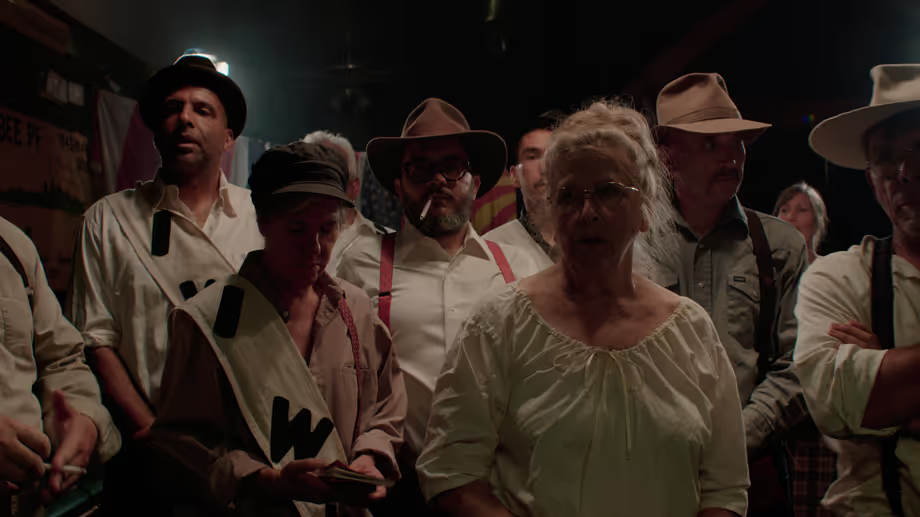Bisbee '17: Discussion Guide Discussion Prompts: The Reenactment
Discussion Prompts: The Reenactment

During the recreation, Dick Graeme, a defender of the mining company’s actions, realizes, “When you replay something like this, and you do it, it’s very disturbing. With these weapons, at the ready like this, herding people like cattle? It’s just wrong, it feels wrong. To me right now, it feels wrong.” How do you think participating in the reenactment changed the way people thought about their town and its history?
Commemoration committee member Mike Anderson says, “I think everyone also has to own up in this world when they really screw up, when they do something bad. That has not quite happened yet.” In your view, what is the role of reenactment and commemoration in healing the town and the descendants of the families involved?
Chris Dietz, a member of the commemoration committee recalls, “We had been talking about a reenactment for years. And some of the reaction was, well that trivializes the event.” Do you share that concern?
Aaron Gain acts in Tombstone, Arizona’s OK Corral show and also plays IWW organizer, A.S. Embree, in the Bisbee re-enactment. What are the differences between the two re-creations and how do those differences influence the effects on participants and audience members?
Britt Hanson, who composed a musical about the event, was confronted with the belief that telling both sides of the story was “like telling the other side of the story in the Holocaust.” What do you think? Do the stories of those who died and the stories of those responsible for the deaths both merit re-telling? Are there certain “stories” in history in which reenacting the perspectives of one side is beyond the pale of decency?
The footage of the deportation reenactment intertwined with footage documenting the planning and preparation offers viewers a sort of movie within a movie. How does this format influence your interpretation of the film and the events it documents?
